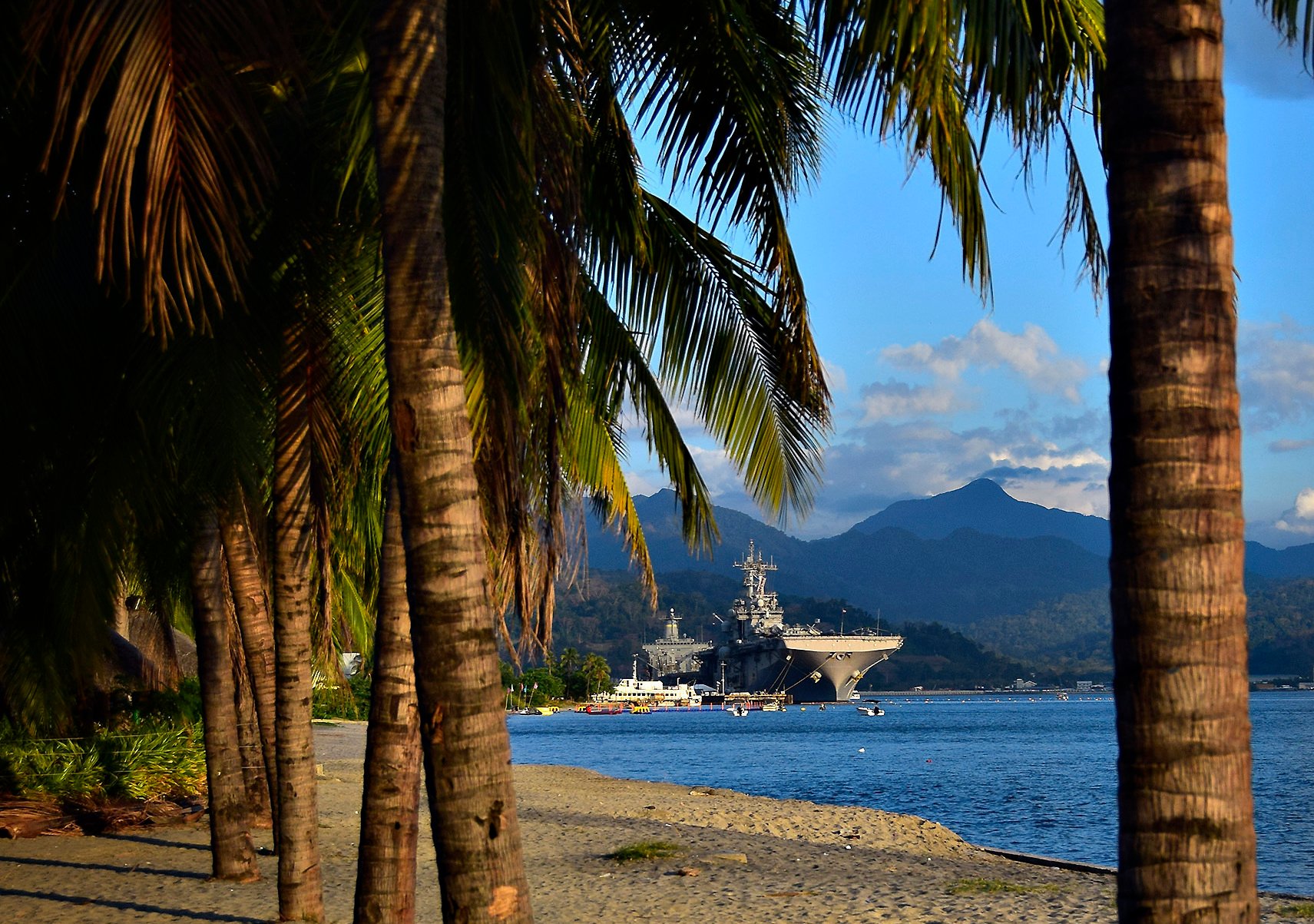
MANILA — The U.S. and the Philippines are set to reinforce a contentious agreement allowing U.S. troops to operate from the island nation as tensions with China remain high, Philippine Defense Secretary Delfin Lorenzana said during a pre-State of the Nation Address forum on Wednesday.
The Visiting Forces Agreement (VFA) will likely be a major topic of conversation during U.S. Defense Secretary Lloyd Austin’s visit to the Philippines next week, Lorenzana said.
The Duterte government moved to scuttle the VFA last year and informed Washington it was pulling out of the agreement, but it has since repeatedly extended its notice amid Manilla defense and military establishment pressure to maintain the pact. Defense and military officials want the VFA to remain as the country faces territorial threats in the Kalayaan Island Group and West Philippine Sea from swarms of Chinese ships, including Chinese maritime militia vessels.
Austin’s first visit to Southeast Asia will cement regional cooperation and security amid China’s expansive claims and activities contrary to international norms in the South China Sea, which have roiled relations between Manilla and Beijing.
“The VFA is not being changed, the document will not be changed, but there will be some addendum, side agreement to implement the VFA,” the defense chief said during a pre-State of the Nation Address forum that was held virtually.
“Once it is signed by the President, it will be an official document attached to the VFA.”
While he was looking forward to his meeting with his U.S. counterpart, Lorenzana said, “There will be just a side agreement to implement the provisions of the VFA and Lorenzana said.
No agenda has been set yet for the meeting, although he said he hopes that they will tackle the VFA, the Mutual Defense Treaty, bilateral relations between the two countries and the West Philippine Sea.
Lorenzana’s statement indicated the VFA governing the presence and activities of American troops in the country will survive following repeated delays of its abrogation by the Duterte administration.
Lorenzana said that he would sign an implementing agreement with U.S. Defense Secretary Lloyd Austin, who will embark for his Southeast Asian visit next week, with a stop in the country.
In the Philippines, Chinese maritime militia vessels accompanied by military and China Coast Guard ships have continued to swarm the Kalayaan Island Group and the West Philippine Sea.
Earlier, Duterte, who had been friendly to China and has been called a traitor by his critics, conceded that the Philippines are no longer in “physical control” of the West Philippine Sea.
His remarks followed frequent pronouncements that “China is a friend” and the Philippines could not afford to go into war with Beijing.
On the fifth anniversary of the Philippines’ victory in its maritime case against China before the U.N. Permanent Court of Arbitration, several groups have prodded Duterte to take a stand against Beijing.
U.S.-based AI-driven satellite mapping firm Similarity exposed Chinese vessels’ disregard of environmental laws and regulations in the South China Sea by releasing and dumping human waste, especially in the Philippines’ claimed maritime territory.
The waste prompted some Filipinos to rebrand the West Philippine Sea as the “Waste Philippine Sea.”
Austin is also expected to drum up support for the U.S. Pacific Defense Initiative, part of which involves training, logistics support and radar and missile deployment in Southeast Asia to counter China.





